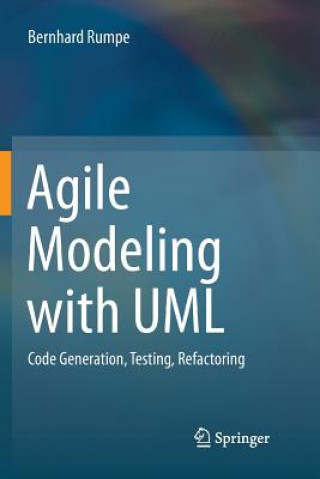
Code: 20094360
Agile Modeling with UML
by Bernhard (Rwth Aachen University and Fraunhofer Fit Germany) Rumpe
This book focuses on the methodological treatment of UML/P and addresses three core topics of model-based software development: code generation, the systematic testing of programs using a model-based definition of test cases, and ... more
- Language:
 English
English - Binding: Paperback
- Number of pages: 388
Publisher: Springer International Publishing AG, 2018
- More about this

114.93 €

Low in stock at our supplier
Shipping in 10 - 15 days
Potřebujete více kusů?Máte-li zájem o více kusů, prověřte, prosím, nejprve dostupnost titulu na naši zákaznické podpoře.
Add to wishlist
You might also like
-

Modeling with UML
102.40 € -
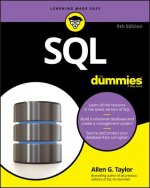
SQL For Dummies 9e
28.85 € -20 % -

The Mythical Man-Month
43.44 € -1 % -

OCUP 2 Certification Guide
65.32 € -9 % -
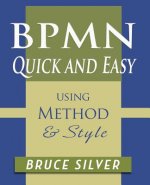
BPMN Quick and Easy Using Method and Style
37.38 € -
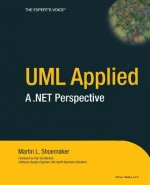
UML Applied
49.19 € -3 % -

Real-Time Object Uniform Design Methodology with UML
215.29 € -

Software Modeling and Design
133.94 € -
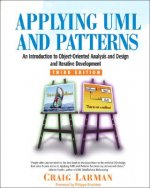
Applying UML and Patterns
81.24 € -
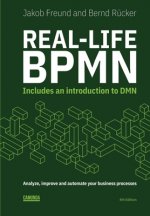
Real-Life BPMN (4th edition): Includes an introduction to DMN
40.05 € -

Discourses of Men's Suicide Notes
66.45 € -

Vaccine Race
14.17 € -24 % -

Let's Speak Korean (with Audio)
19.51 € -4 % -

Making Japanese Woodblock Prints
17.25 € -19 % -

Ancient Magus' Bride Supplement I
12.32 € -20 % -

King Leopold's Ghost
18.68 € -13 % -

Introduction to Applied Linguistics
60.90 € -

Oxford Handbook of Endocrinology and Diabetes
59.26 € -

Saga of Tanya the Evil, Vol. 10 (light novel)
12.52 € -18 % -

Artisan's Book Of Fetishcraft
24.54 € -16 % -
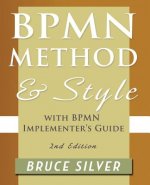
BPMN Method and Style, 2nd Edition, with BPMN Implementer's Guide
47.65 € -

Modeling and Analysis of Real-Time and Embedded Systems with UML and MARTE
84.32 € -

J Dilla's Donuts
12.73 € -22 % -

Fundamentals of Scientific Research - An Introductory Laboratory Manual
63.88 € -

Selected Diaries
14.47 € -23 % -

UML Distilled
45.08 € -7 % -

Franz Kafka
20.33 € -13 % -

Romantic Englishness
71.07 € -

Comprehensive Catalogue of Duet Literature for Female Voices
202.76 € -

Guide to Business Analysis Body of Knowledge (Babok Guide)
66.24 € -12 % -

The Sound of Movies
24.23 € -

El Invencible
24.23 € -7 % -

Freiburg an einem Tag
7.90 € -

Microsoft Excel 2019 Krok po kroku
15.91 € -24 % -

Cicatriz / Scar
15.50 € -6 %
Give this book as a present today
- Order book and choose Gift Order.
- We will send you book gift voucher at once. You can give it out to anyone.
- Book will be send to donee, nothing more to care about.
More about Agile Modeling with UML
You get 283 loyalty points
 Book synopsis
Book synopsis
This book focuses on the methodological treatment of UML/P and addresses three core topics of model-based software development: code generation, the systematic testing of programs using a model-based definition of test cases, and the evolutionary refactoring and transformation of models. For each of these topics, it first details the foundational concepts and techniques, and then presents their application with UML/P. This separation between basic principles and applications makes the content more accessible and allows the reader to transfer this knowledge directly to other model-based approaches and languages. After an introduction to the book and its primary goals in Chapter 1, Chapter 2 outlines an agile UML-based approach using UML/P as the primary development language for creating executable models, generating code from the models, designing test cases, and planning iterative evolution through refactoring. In the interest of completeness, Chapter 3 provides a brief summary of UML/P, which is used throughout the book. Next, Chapters 4 and 5 discuss core techniques for code generation, addressing the architecture of a code generator and methods for controlling it, as well as the suitability of UML/P notations for test or product code. Chapters 6 and 7 then discuss general concepts for testing software as well as the special features which arise due to the use of UML/P. Chapter 8 details test patterns to show how to use UML/P diagrams to define test cases and emphasizes in particular the use of functional tests for distributed and concurrent software systems. In closing, Chapters 9 and 10 examine techniques for transforming models and code and thus provide a solid foundation for refactoring as a type of transformation that preserves semantics. Overall, this book will be of great benefit for practical software development, for academic training in the field of Software Engineering, and for research in the area of model-based software development. Practitioners will learn how to use modern model-based techniques to improve the production of code and thus significantly increase quality. Students will find both important scientific basics as well as direct applications of the techniques presented. And last but not least, the book will offer scientists a comprehensive overview of the current state of development in the three core topics it covers.
 Book details
Book details
Book category Books in English Computing & information technology Computer programming / software development Software Engineering
114.93 €
- Full title: Agile Modeling with UML
- Subtitle: Code Generation, Testing, Refactoring
- Author: Bernhard (Rwth Aachen University and Fraunhofer Fit Germany) Rumpe
- Language:
 English
English - Binding: Paperback
- Number of pages: 388
- EAN: 9783319864945
- ID: 20094360
- Publisher: Springer International Publishing AG
- Weight: 6088 g
- Dimensions: 235 × 156 × 22 mm
- Date of publishing: 25. July 2018
Trending among others
-

Cracking the Coding Interview
35.94 € -12 % -

Designing Data-Intensive Applications
47.24 € -23 % -

Implementing Domain-Driven Design
62.44 € -

Peopleware
40.67 € -5 % -

Clean Code
52.48 € -

Clean Architecture
35.74 € -

The Clean Coder
41.90 € -

Domain-Driven Design Distilled
35.84 € -9 % -

ISTQB® Certified Tester Foundation Level
89.87 € -

Working Effectively with Legacy Code
65.32 € -

Refactoring
53.92 € -

Patterns of Enterprise Application Architecture
64.39 € -6 % -

Management 3.0
49.30 € -
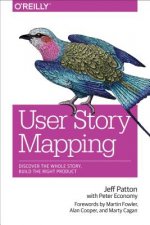
User Story Mapping
37.69 € -7 % -

Continuous Delivery
58.44 € -

Head First Objects-Oriented Analysis and Design
68.30 € -4 % -

Gradle in Action
58.44 € -

Building a Data Warehouse
90.18 € -

Agile Software Engineering
32.86 € -
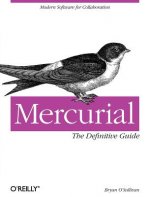
Mercurial
50.73 € -

Show-Stopper!
25.77 € -
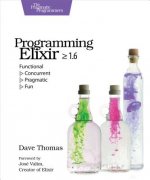
Programming Elixir 1.6
48.27 € -1 % -

Test Driven Development
44.98 € -

User Stories Applied
44.16 € -10 % -

Software Architect Elevator
63.06 € -6 % -

Software Engineering at Google
53.20 € -21 % -

Clean Agile
39.33 € -5 % -
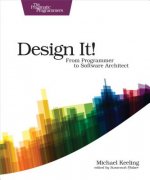
Design It! : Pragmatic Programmers
35.53 € -16 % -

Foundations of Software Testing
70.25 € -

Advanced Software Testing - Vol. 1, 2nd Edition
45.49 € -18 % -
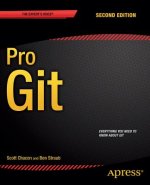
Pro Git
68.91 € -

Advanced Software Testing
66.24 € -
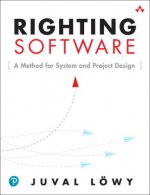
Righting Software
54.33 € -

Practical Test Design
64.91 € -

Agile Product Management with Scrum
35.94 € -1 % -

Agile Testing
49.81 € -7 % -

Advanced Software Testing V 2. 2e
49.19 € -23 % -

Explore It!
32.76 € -

Lessons Learned in Software Testing - A Context- Driven Approach
45.60 € -4 % -

Software Requirements
44.16 € -13 % -
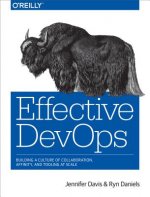
Effective DevOps
41.49 € -19 % -

Art of Application Performance Testing 2e
36.66 € -21 % -
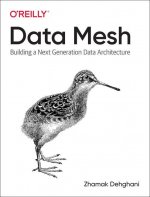
Data Mesh
64.19 € -21 % -

More Agile Testing
46.42 € -10 % -

Kubernetes and Docker - An Enterprise Guide
66.24 € -
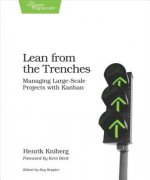
Lean from the Trenches
26.39 € -23 % -

97 Things Every Software Architect Should Know
28.85 € -20 % -

Programming Interviews Exposed Fourth Edition - Coding Your Way Through the Interview
24.85 € -21 % -

Writing Effective Use Cases
56.79 € -5 %
Collection points Bratislava a 2642 dalších
Copyright ©2008-24 najlacnejsie-knihy.sk All rights reservedPrivacyCookies


 15549 collection points
15549 collection points Delivery 2.99 €
Delivery 2.99 € 02/210 210 99 (8-15.30h)
02/210 210 99 (8-15.30h)